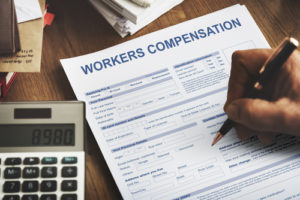Workers’ Compensation In NJ

New Jersey’s workers’ compensation laws are in place to protect the interests of both employers and employees in the event of work-related accidents. When you’ve been injured on the job, employers must pay worker’s compensation benefits. Benefits may include medical bills, temporary disability benefits or permanent benefits. These benefits will be received regardless who was at fault. In exchange for the benefits, you can’t legally sue the employer for damages unless the injuries arose during an intentional or malicious event. Issues may arise when insurance companies attempt to pay an amount less than what injured workers are entitled to for their claim.
When you’ve been injured as a result of an accident at work, you need to file a formal claim with the New Jersey Worker’s Compensation Courts. You need to hire a legal representative that will represent and protect your rights before, during and after your claim. If you fail to file a formal claim, then you may end up settling for less than what you are entitled to or your medical treatment may be affected. An employer’s insurance company will investigate the claim and decide the amount of benefits you are entitled to. Further legal action should be pursued when you have received unfair compensation, have been terminated from your job, exhausted temporary disability benefits and are unable to return to work or have been permanently disabled. An experienced worker’s compensation lawyer will help you determine how to legally collect your compensation.
At CourtLaw, our attorneys recognize how stressful and overwhelming it is to be injured at your place of employment and then find yourself battling for your just compensation. We understand that our client’s lives may have been drastically altered as a result of their injury, and we want to work together with you to obtain fair compensation. Don’t battle against insurance companies alone. Our experienced lawyers can be reached at 866-632-4211 or via our online contact form.
The articles on this blog are for informative purposes only and are no substitute for legal advice or an attorney/client relationship. If you are seeking legal advice, please contact our law firm directly.




